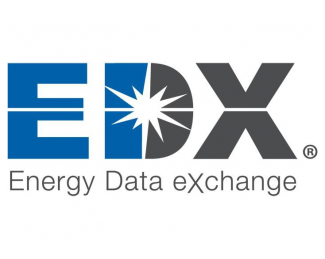The Energy Data eXchange (EDX), an NETL-developed virtual library and data laboratory built to advance fossil energy and environmental research and development (R&D), celebrates its 10th anniversary this month. EDX supports the entire lifecycle of data by offering secure, private collaborative workspaces to help scientists maximize their research potential and further critical technology advancements. The virtual tool has seen wide success since its inception and is in a prime position to support the artificial intelligence and machine learning big data revolution currently under way.
Developed in 2011, EDX is the only U.S Department of Energy (DOE) platform tailored to support research from start to finish. Throughout the decade, data hosted and utilized on EDX has supported NETL’s Oil and Gas Program and Carbon Storage Program, as well as many other vital energy research areas. EDX data has been used to inform decisions surrounding the prevention of environmental and social risks of offshore drilling, preventing infrastructure failures in oil wells, informing a variety of decarbonization efforts in the U.S. and more.
Users have uploaded hundreds of terabytes of data and downloaded nearly 1.2 million files (14 petabytes) to drive innovative energy research. EDX currently hosts hundreds of thousands of combined public and private resources, and nearly 1,000 private collaborative workspaces have been created since the online tool’s inception. To date in 2021, EDX experienced over 300 new registered users, the creation of over 100 new workspaces and 89,314 new resources uploaded. In August 2021, more than 19,000 new resources and 9 TB of data were uploaded.
By utilizing the unique capabilities of EDX, energy researchers are using this data to drive development in carbon materials, rare earth elements, critical minerals, extreme alloys and a number of other focus areas. Over the decade, EDX has kept hosted resources secure by adhering to DOE cybersecurity policies and meeting federal security standards. The tool is curating research and data products that are the result of billions of dollars of FECM and other R&D investments to ensure access and reuse, working to catalyze the next generation of data-driven breakthroughs for our nation’s social, environmental and energy goals.
“Since 2011, our goal has been to create the ideal workspace for energy research to take place,” Kelly Rose, Ph.D. and one of the creators of EDX, said. “The ability to preserve data, collaborate with researchers in a secure online environment and manage data across every stage of development is expediting development of the energy technologies of the future.”
EDX has grown into a trusted resource used by both internal national laboratory researchers and external collaborators from government agencies, universities, nonprofits and industry. Its functionality was built from the needs and suggestions of NETL researchers, and the tool has been continually updated since its inception to make data curation and development more efficient. Private workspaces with drag-and-drop capabilities, dashboards and digital notebooks were added to make collaboration easier across organizations, and EDX developers are in the process of implementing an internal messaging application to further streamline user experiences.
Several DOE Office of Fossil Energy and Carbon Management (FECM) research programs are encouraging and supporting the curation of R&D products over the past decade. These include:
- eXtremeMAT, a NETL-led consortium that seeks to develop unique capabilities for materials design, high-performance computing, manufacturing and characterization to accelerate the development of materials for service in extreme environments.
- The National Risk Assessment Partnership (NRAP), a collaboration of five national laboratories focused on quantifying and managing subsurface environmental risks to support implementation of safe and secure large-scale geologic carbon storage.
- Science-based Artificial Intelligence and Machine Learning Institute (SAMI), established in 2020 to combine the strengths of NETL’s energy computational scientists, data scientists and subject matter experts with strategic partners to drive solutions to today’s energy challenges. SAMI seeks to build off NETL’s data management curation efforts with EDX to foster a robust carbon management artificial intelligence/machine learning (AI/ML) community, which includes providing access to data required for projects to connect to AI/ML resources and drive next-generation technology breakthroughs for the future.
Learn more about EDX’s capabilities and future directions in this video.
NETL is a U.S. Department of Energy national laboratory that drives innovation and delivers technological solutions for an environmentally sustainable and prosperous energy future. By leveraging its world-class talent and research facilities, NETL is ensuring affordable, abundant and reliable energy that drives a robust economy and national security, while developing technologies to manage carbon across the full life cycle, enabling environmental sustainability for all Americans.




